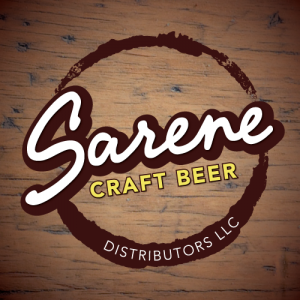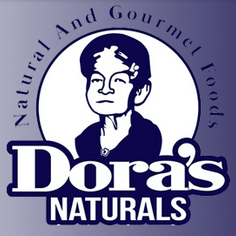
Both companies are betting on continued growth in craft and have launched beer wholesale operations to service the segment in the Empire State market. New York, however, has no shortage of established competitors — much larger companies like Manhattan Beer Distributors, L. Knife & Son, Oak Beverages and S.K.I. Beer, to name a few — service the city’s endless on-premise and off-premise accounts.
Changing state distribution regulations will soon allow breweries to move around a bit more, perhaps letting insurgent, craft focused wholesalers build their portfolios. But like the emphasis on taste that has driven the rise of the craft products they carry, the two new wholesalers know that wins are only going to come by focusing on quality over quantity.
“We are going to have to work very closely with brands to develop them in a grassroots way,” said Chris Psuik, vice president of business development at longtime dairy distributor Dora’s. “[Some distributors] don’t care what they put on their truck, it’s just tonnage. They just want to cube out their trailers. We don’t want to do that, we really want to be connected to that brand.”
Still, what separates the two from their larger and more-resourced counterparts is less than clear at first glance.
“We’re not doing anything to reinvent the wheel,” said Matt Schulman, co-founder of newly created Sarene Craft Beer Distributors.
Psuik, who has also helped turn Dora’s longstanding milk and dairy accounts into a growing specialty non-alcoholic beverage portfolio, sang a similar tune.
“We all have trucks, we all have handhelds, we all have sales reps,” he said. “95 percent of what we offer is what other distributors offer.”
What they hope differentiates them, then, is an emphasis on the kind of care small, high-end breweries need to grow.
“We plan on being extremely selective with the breweries we add to ensure that our customers can associate quality with Sarene,” Schulman said.
One of Sarene’s seven brands, SingleCut Beersmiths, signed on, in part, because of that ethos.
“When [Schulman] walks into a bar, rather than having 100 brands to sell, he has five or six or seven, so just by default, he has to focus on us,” said Mark Mueke, head of SingleCut’s sales team.
SingleCut kegs will be some of the first to roll off of Sarene’s trucks. The brewery just delivered 72 of them for the startup distributor’s initial New York City launch.
Its selective strategy guarantees Sarene’s current suppliers will “continue to receive a high level of focus and attention,” as well, Schulman said.
“I think we offer the best blend of an extremely knowledgeable, personable sales team and a tight portfolio that allows us to really focus and drive and grow with the brands we have, rather than growing through frequent brewery additions.”
The company launched itself onto the craft beer scene in December with five brands already on board: Port City Brewing Co. (Alexandria, Va.), Central Waters Brewing Co. (Amherst, Wis.), Thirsty Dog Brewing Co. (Akron, Ohio), Lakefront Brewery (Milwaukee, Wis.), and Carton Brewing (Atlantic Highlands, N.J.).
Founded by Matt and Eric Schulman — brothers with previous craft wholesaler experience — Sarene has since signed agreements with New York’s Horseheads Brewing Co. as well as SingleCut, and the company plans to announce more additions this year.
It distributes primarily to the five boroughs, but also sells beer on Long Island and in the seven counties immediately north of the city.

So, equipped with a beer license, experience in delivering beverages and plenty of cold storage space, Dora’s expanded into craft. The company signed Voodoo Brewing Co. of Meadville, Pa., last September and Galaxy Brewing Co. of Binghamton, N.Y. shortly thereafter.
Psuik said Dora’s currently serves about 50 craft beer bars with Voodoo and Galaxy product, on draft, and is focusing its efforts on the five boroughs: Manhattan, Brooklyn, Queens, The Bronx, and Staten Island. Dora’s has also secured 100 points of off-premise distribution for Voodoo bottles.
“Our strategy kind of mimicked how we’ve done natural foods,” said Psuik. “Kind of go slow, get it right, then pick the right partners to be with long term and go from there.”
Dora’s is also working with both of its craft brands to create long-lasting, on-premise partnerships, Psuik said. They’re working with the brewers to execute “beer nights, beer functions, everything you need to get people connected with the brand.”
That also means Dora’s has plans to invest in its own craft beer team.
“We’re totally committed to growing and developing this division,” said Psuik. “We’re very methodical when we enter any new category and we want to be really good at what we do.”
The company runs 50 trucks, all refrigerated, and has 80,000 sq. ft. of warehouse space — much of which is dedicated to cold storage.
With Dora’s and Sarene both dedicated to pushing fewer brands, craft beer companies already distributing in New York might decide to change houses to get more attention. A law passed last August allows craft beer companies that make up less than 3 percent of a wholesaler’s business to switch distributors for fair market value.
“I’m sure that there will be opportunities down the road where [breweries] feel they aren’t getting enough attention,” said Psuik.
Steve Hindy, founder of Brooklyn Brewery, the 11th-biggest craft brewery in the country, according to the Brewers Association, said similarly that distributors face losing brands should quality of service slip.
“I don’t want to name names but we’ve had distributors we were not very happy with who, after that law, had become much more committed to us and are selling a lot more of our beer,” he said.
“I think the market is going to be a lot more flexible now with the new law,” he said, adding that he thought it was a good thing for both brewers and distributors.
But of course, new distributors shouldn’t just bank on breweries leaving their current partnerships with bigger companies. Manhattan Beer sold “just shy of 35 million” case equivalents in 2013 (2 million of which was craft) according to Vice President of sales of craft, wine and spirits, Rob Mitchell — but has not lost any brands since the law passed.
“We are one big happy family,” said Mitchell.
That family though, however big, is still impacted by smaller operations, he added.
“Obviously, anytime there’s somebody else you’re competing against for draft lines, it just gets tougher,” he said. “So does that hurt our brands? A little, but… if the brand has aspirations of becoming bigger, sooner or later they’re going to outgrow the guy with two vans.”
Nonetheless, Mitchell welcomes the competition.
“We’re happy to have more people who have the ability to bring craft beer to market,” he said. “It’s all fair competition.”